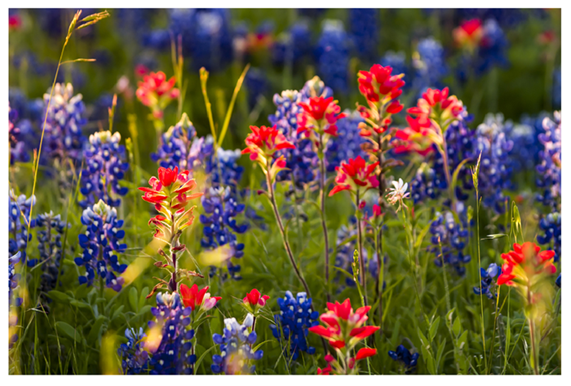We speak of it as though it is natural, a gradual diminishing through wearing away, an abrasion of the surface by wind and sun. When it is beautiful and not too extreme, we call it patina. When it is destructive in ways we never conceive, we wrap it in a darker name.
*
We are dismayed at the sight of soil that is beaten by weather, the shoreline withdrawn, the hillside reshaped. But we have learned to place erosion in the context of time and the elements, knowing the diversity of landscapes, the spread of ground cover, and somewhere, wildflowers.
*
There is nothing natural in the erosion of a marriage.
When a husband leaves, we tell ourselves this is not so different from the months and years that precede his departure, only more acute. We attempt to measure what we cannot articulate.
The physician’s pain scale offers assistance. The disappearance of conversation was a five, and now it is a seven; the dismissal of touch was a six, and now it is an eight; the absence of a parent was a four, and now it is a nine.
Children possess no reference by which to make comparisons and so we assume a ten in their nights of tears.
The pen moves methodically across the page to bear the weight of his words: the house is not a home, it is a pile of bricks; the ring is not a covenant, it is a hunk of metal; the children are casualties of war.
When there are mines in the meadow, erosion seems such small damage.
*
We are built to withstand the caprices of midnight’s chill and morning’s clarity, exteriors battered by rains and swollen by humid air, the howling of the wind and the cleanup after. Afternoon’s brilliance will freckle the skin. Lines will introduce themselves through hours of worry and seasons of laughter.
*
We treasure it in our treen and case goods, our country armoires and colonial tea tables. We marvel at the centuries and accept their markings. We polish to protect and enhance our surfaces. If erosion is the edict of a crueler nature, it meets its match in the pleasures of patina.
*
We turn to our foundations and reinforce them. Children grow and take to running. Somewhere, wildflowers: thimbleweed and scarlet bee balm, blue bonnets and Indian paintbrush; my face, a night blossom in new found hands.

Please visit the writing party “By Invitation Only” here. This month’s prompt is “patina.”

You evoke every emotion with this post, Wolfie. Maybe patina is a covering, a covering of our scars and wounds. And, reminding us that any pain for a child is a “10” to them is brilliant. I am so happy you are a member of our group, you add so much! Thank you thank you thank you.
There is so much to think about here…I want to wander off in my busy day and let these thoughts just rattle around in my collective consciousness….is patina just a step on the way to that deeper erosion…the beauty before the utter destruction…the point of precipice…or is it seeing beauty in the decay itself….
Thank you for such powerful words: not the frippery of life, but the real stuff.
Punaise, je suis blastée. Mais BLASTEE. Like Virginia, I am going to need to sip on these ideas slowly for they are too fine to be gulped down.
I never take your talent for granted, even if it continues to surprise me my friend.
Thank you Heather, and Marsha and Virginia Blue. It was an interesting exercise that took me places I didn’t anticipate.
What a stunning piece of writing, D. Truly.
I was especially struck by the metaphor of the doctor’s pain scale. If only our emotional wounds could be treated with a doctor’s prescription. xo
Thank you, Kristen. And likewise, our children, who so often have no voice – literally or metaphorically.